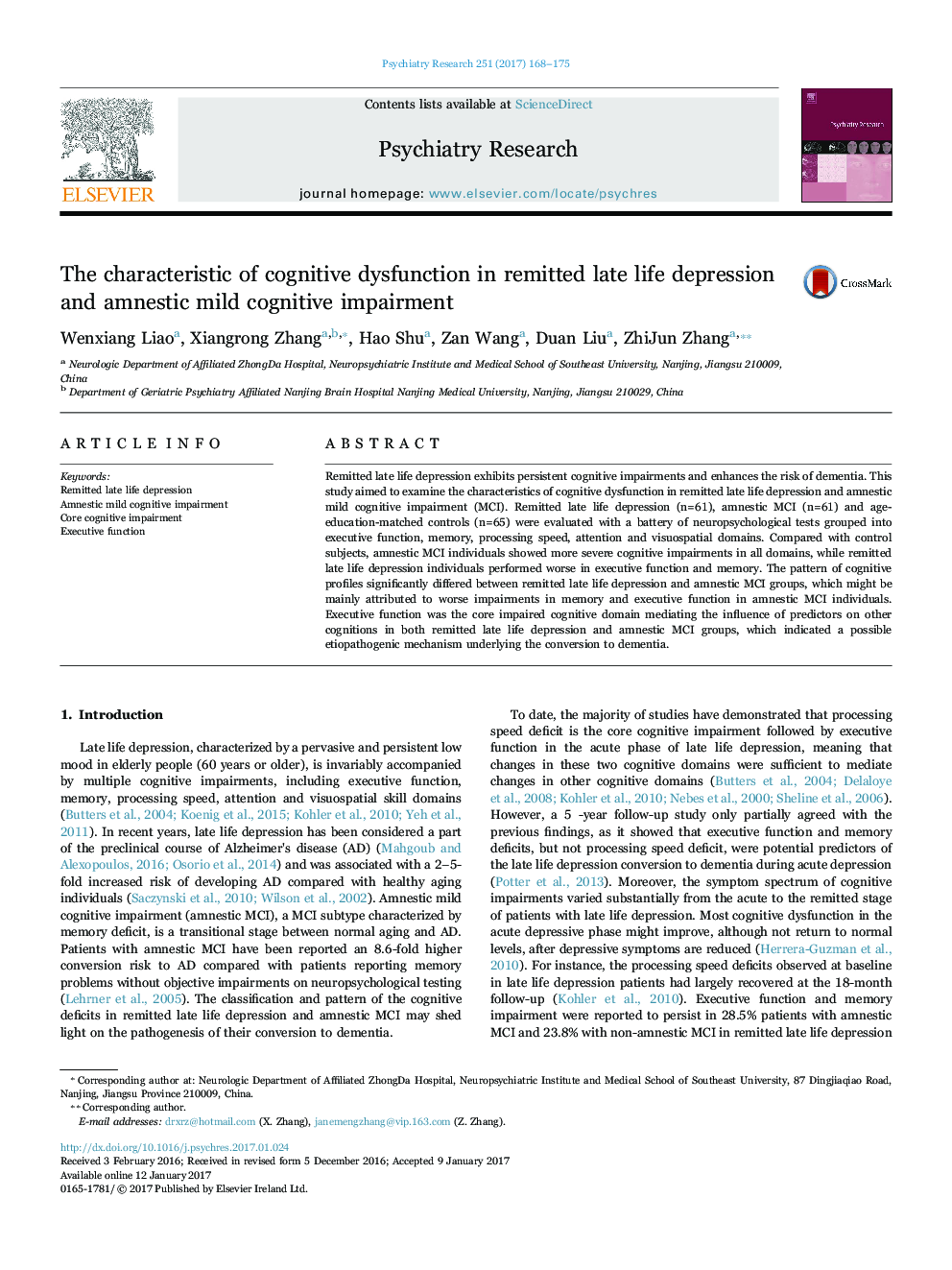| Article ID | Journal | Published Year | Pages | File Type |
|---|---|---|---|---|
| 4933569 | Psychiatry Research | 2017 | 8 Pages |
Abstract
Remitted late life depression exhibits persistent cognitive impairments and enhances the risk of dementia. This study aimed to examine the characteristics of cognitive dysfunction in remitted late life depression and amnestic mild cognitive impairment (MCI). Remitted late life depression (n=61), amnestic MCI (n=61) and age-education-matched controls (n=65) were evaluated with a battery of neuropsychological tests grouped into executive function, memory, processing speed, attention and visuospatial domains. Compared with control subjects, amnestic MCI individuals showed more severe cognitive impairments in all domains, while remitted late life depression individuals performed worse in executive function and memory. The pattern of cognitive profiles significantly differed between remitted late life depression and amnestic MCI groups, which might be mainly attributed to worse impairments in memory and executive function in amnestic MCI individuals. Executive function was the core impaired cognitive domain mediating the influence of predictors on other cognitions in both remitted late life depression and amnestic MCI groups, which indicated a possible etiopathogenic mechanism underlying the conversion to dementia.
Related Topics
Life Sciences
Neuroscience
Biological Psychiatry
Authors
Wenxiang Liao, Xiangrong Zhang, Hao Shu, Zan Wang, Duan Liu, ZhiJun Zhang,
